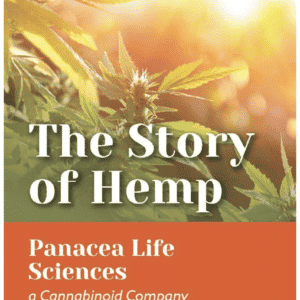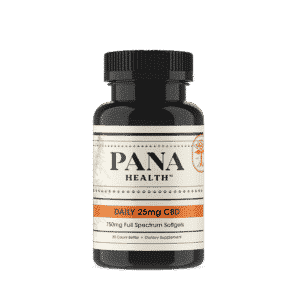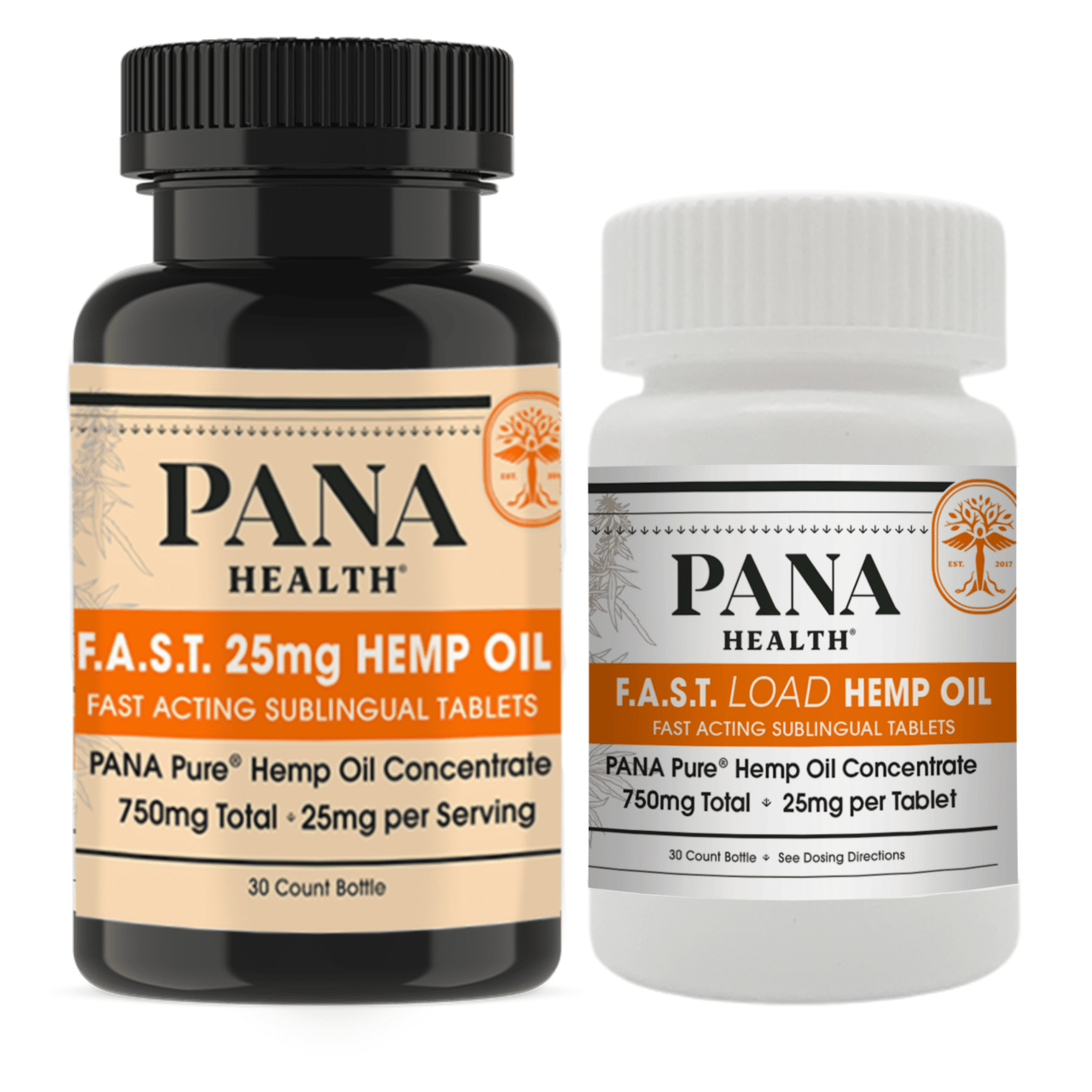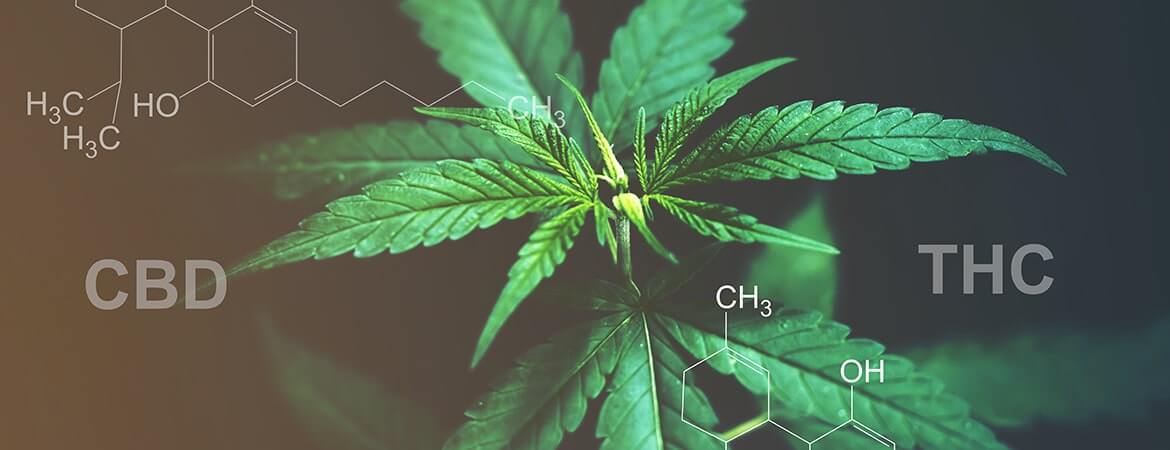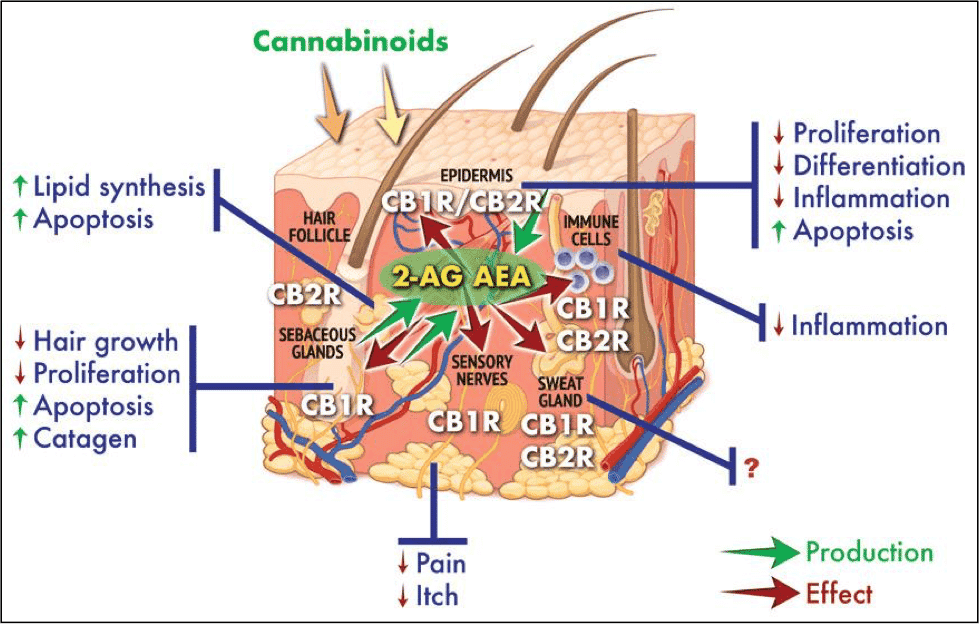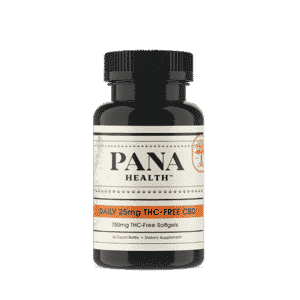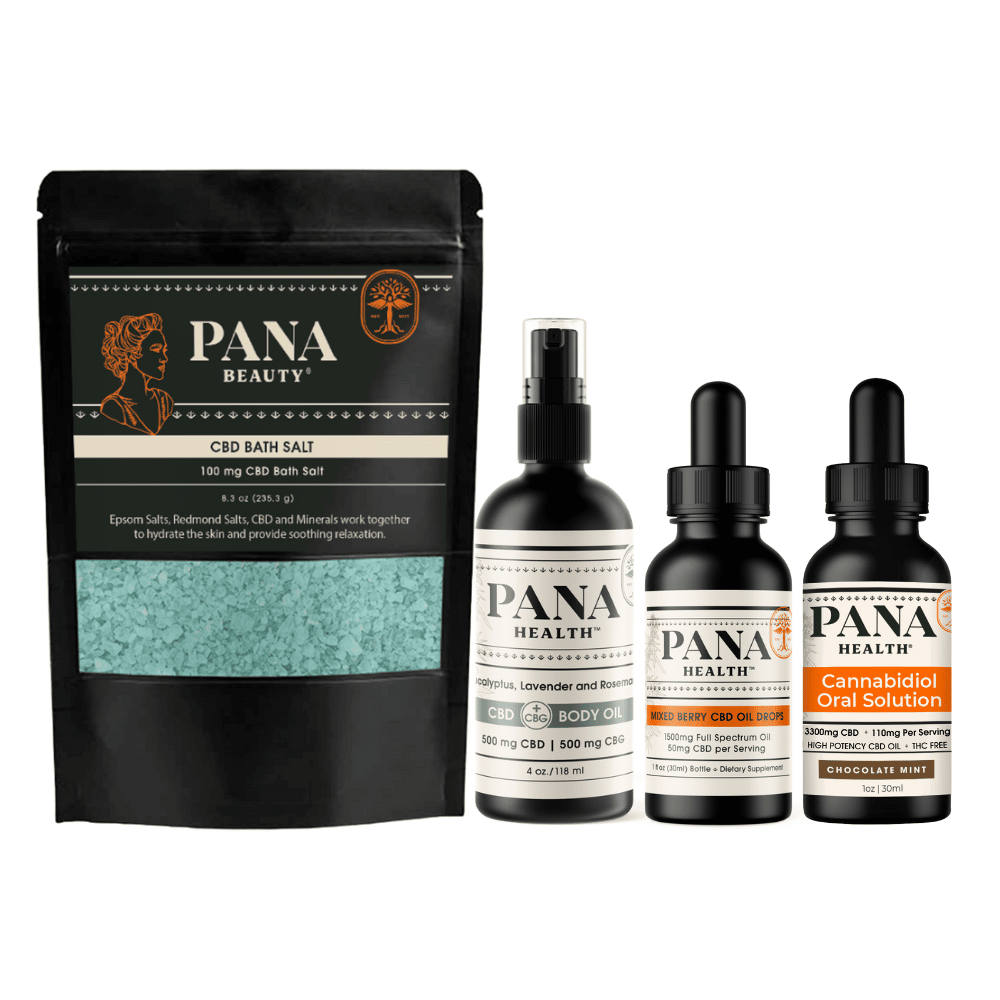If you have been paying attention to the talk surrounding cannabidiol (CBD), it can feel like CBD has been claimed to do just about anything. However, recent research has been aimed at something rather fascinating; CBD may have antibacterial properties. This means that CBD may be able to be used as a disinfectant.
Here at Panacea Life Sciences, we find new research surrounding CBD to be exciting. We want to explore this idea a bit more and dive into what it could mean.
What is CBD?
It’s hard to talk about why the idea of CBD being antibacterial is so exciting if you don’t know what CBD is. So, let’s lay down a quick definition and why exactly it is so popular.

CBD is one member of a class of chemical compounds called cannabinoids. The name may sound familiar. This is because they are named after the kind of plants that they are commonly found in, cannabis plants (though they are more often called hemp and marijuana). Cannabis contains over 113 cannabinoids, including CBD and tetrahydrocannabinol (THC).
THC is so famous because it has psychoactive properties. This means that it creates the high that has led to cannabis being considered a drug. This infamous ability of THC has led many people to equate all cannabinoids with getting high. However, THC and its oxidized form cannabinol (CBN) are the main cannabinoids that seem to have any psychoactive effect.
When people ask if CBD can get you high, the answer is quite simply, no. Many people who use CBD report that the only change in their mental state is that CBD promotes a feeling of calmness. The only way a CBD product will get you high is if it has a high content of THC in it, which would be illegal in most states.
Much research has been done on CBD to see what properties it has. A lot of this research has been aimed at helping people with inflammation and issues caused by inflammation. Researchers have also looked at how CBD may help with mental wellness for people who struggle with PTSD or depression. There have also been studies looking at how CBD could potentially be beneficial for those who deal with severe conditions like Parkinson’s Disease or heart disease.
There are plenty of people who use CBD for the reasons listed above. Some take them just to help with their skin health, or for their general wellbeing.
CBD has seen a rise in popularity since hemp was legalized (we’ll go into more detail about that legalization later). You can now find CBD in just about everything. It is in many foods and drinks, including crackers and sparkling water. You can buy lotions and skin creams that are made with CBD. Of course, many people prefer taking CBD in a tincture or oil.
Is it legal?
This is a legitimate concern. After all, cannabis in most forms has been illegal in the United States for a very long time, with laws surrounding it only changing in the last few years. So, why has the attitude around cannabis changed?
There was a growing fear in America during the early 1900’s surrounding cannabis as a lot of misinformation spread about it, including that it made people want to commit violent crimes. There even was a film released called “Reefer Madness,” which advised parents to keep their children away from cannabis as it would lead to a life of addiction, crime, and jazz parties. This led to most states outlawing it in a matter of 15 years, despite there being no actual evidence to support these claims. Then in 1937, it was officially banned in the country through the Marijuana Tax Act.
For about 20 years in the US, the general consensus was that cannabis had no health benefits, despite a lot of the medical community trying to argue otherwise. However, in the 1960’s there was a shift in people’s feelings toward the plant started to change. Because of this both Presidents Johnson and Kennedy commissioned studies look at cannabis’s effects. These studies found that cannabis use did not cause violent urges. Despite these findings, cannabis remained illegal.
Then in 1996, California legalized marijuana for medical use. This opened the flood gates for the country to reevaluate cannabis. Soon many states were legalizing medical marijuana. Then the most noticeable change came in 2018.
The United States Legislature passed the 2018 Farm Bill in December of that year. This is a fairly routine bill that is supposed to be a review, revised, and renewed every five years. However, 2018’s bill was different. This version included a section that effectually made hemp legal. This way, farmers could grow cannabis low in THC for commercial purposes. The bill also made it so that hemp and products derived from it (as long as they have less than 0.3% THC content) could be sold and transported across state lines. This was the first time in over 70 years that the United States had any form of cannabis that had been legalized on a federal level.
All of this just to say, yes, it is legal. As long as CBD has been derived from hemp and not marijuana, it is perfectly legal. Since December of 2018, industrial hemp has been legal in all 50 states. As of the writing of this article, recreational marijuana is still illegal in most states, but medical use is legal in most. The main difference between hemp and marijuana is THC content. If a cannabis plant has less than 0.3% THC content, it is defined as hemp. If it has over that amount, it is marijuana.
Essentially, what this means is that if a CBD product has been extracted from hemp and has less than 0.3% THC in it (which is most CBD), it is legal anywhere in the United States.
Is using CBD safe?
Despite its legalization and the lack of psychoactive effects of CBD, there is still some worry about how safe CBD is. But they need not worry. There are no severe side effects that are associated with CBD. The side effects that people do have are things along the lines of nausea and fatigue. However, these side effects are mainly felt by people who take large doses of CBD over a short time. Many who do experience the side effects report them going away after they stop or lower their dosage.
According to recent research, CBD seems to be safe for both children and pets. So, if there is concern that was using a CBD product in a house with kids and/or dogs, you can rest easy. The first CBD based medication to be approved by the FDA is aimed mainly at children. It is called Epidiolex. It’s an epilepsy medication designed to stop seizures, especially in kids.
Though it should be noted that, as with most things that are not toys, CBD should be kept out of reach of children and animals. As mentioned, there are no severe side effects associated with it, but it is still something that should be controlled.
Is CBD antibacterial?
As we laid out before, research on CBD has picked up in the last couple of decades, and we are still learning so much about it.
In 1976 a study was conducted to test the antibacterial abilities of THC and CBD. This study found that both cannabinoids considerably brought down the activity of both staphylococci and streptococci. However, this study was largely ignored. This may be because of the time it was published, as cannabis in any form was criminalized in 1937.
In 2008 this line of research was started up again when a group of researchers looked to see precisely how certain cannabinoids stood up to staphylococcus. They found that the cannabinoids were effective in destroying parts of the bacteria but could not seem to pin down how exactly they do it.
It is becoming more apparent that CBD may be useful in breaking down bacteria. What is particularly interesting about the cannabinoids’ bacteria-fighting is that scientists still don’t fully understand how they do it. It appears that cannabinoids use a different technique of killing bacteria is not how regular antibiotics do it. It seems that scientists have plenty more research to do to understand all the CBD can do fully.
In the meantime, let’s shift to what all of this article has been building up to; is CBD a proper disinfectant.
Can CBD be used as a disinfectant?
First, let’s talk about what a disinfectant even is and how it works.
A disinfectant is something that can kill or impede potentially harmful microorganisms, namely bacteria. They work through three primary methods; they can cause cells to clump together, they can disrupt the structure and, therefore, the function of the cell, or they can oxidize the cells entirely.
Two ingredients are ubiquitous in most disinfectant products. They are alcohol and chlorine. These two use different ways of killing bacteria. Alcohol does it through the clumping method. When exposed to the right dilution of alcohol (cells can generally hold up against pure alcohol), the bacterial cells clump together, and their membranes start to fall apart. Without the membrane structure, the bacteria lose their ability to function and replicate.
Chlorine disinfects using oxidization. Specifically, it is good at oxidizing lipids and proteins. The disruption of the membrane, similar to alcohol, and destroying the function of proteins, makes it very difficult for the bacterial cell to function and grow. Chlorine is also impressive because, unlike many disinfectants, it can even breakdown certain viruses and bacterial spores. However, chlorine can be dangerous when mixed with certain chemicals and should be used carefully.
Getting back to the main question at hand, the studies discussed in the above section would suggest that yes, CBD does have antibacterial properties. However, that doesn’t mean that you can use CBD oil in place of washing your hands or wiping down your counter. There are CBD infused products that are made specifically to disinfect. For example, a hand sanitizer is likely also to contain alcohol along with the CBD. A lotion, likely will not have any other disinfectants. Many CBD manufactures have produced CBD wipes and hand sanitizers. These products vary in price but mainly seem to hover around $20.
You may be wondering why you can’t just use a CBD cream instead of buying CBD hand sanitizer. After all, if CBD has disinfectant properties, then it should work that way, right? Well, not really. The best way to get CBD to work is to use it in its intended way. Meaning CBD cream is designed to work better for helping with aches and inflammation. In contrast, CBD hand sanitizer is going to be a better disinfectant because that is what it is intended to do. It will have other ingredients to help the disinfecting to work.
While this is something that goes without saying, it should still be said; read the labels of the CBD disinfectants you are thinking about buying. If they contain any ingredients you are allergic to, please do not use them.
The promising research surrounding CBD is exciting, but it does not mean that you should be using a CBD cream to treat an infection. Nor does it mean that it can replace proven preventive measures, like vaccinations. Just like any other supplement, you may use; it is also smart to talk to a medical professional before starting use.
As research on CBD continues to grow, we are learning so much about this fantastic compound. It is exciting to see what else it has in store for us.
Want to learn more about CBD? Have any questions that haven’t been answered by this article? Feel free to contact us or explore the many other articles we have on our website. You can contact a member of the Panacea Life Sciences team through our website or by emailing [email protected].
Sources:
https://www.cmmonline.com/articles/the-science-of-disinfectants
https://libguides.law.uga.edu/c.php?g=522835&p=3575350
https://www.history.com/news/why-the-u-s-made-marijuana-illegal
https://www.ncbi.nlm.nih.gov/pubmed/31635105
https://www.ncbi.nlm.nih.gov/pmc/articles/PMC6033872/
https://pubs.acs.org/doi/full/10.1021/np8002673
https://arstechnica.com/science/2008/08/killing-bacteria-with-cannabis/
https://www.projectcbd.org/science/cannabis-and-immune-system


